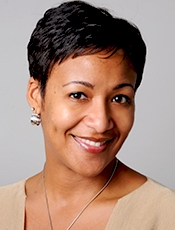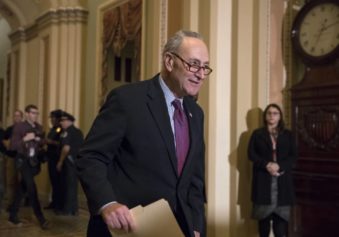A study led by a California-Berkeley associate professor shows a harsh reality: Poor Black people are more prone to die or have significant health concerns than other poor Americans.
Amani Nuru-Jeter and her team’s research shows the mortality rate is directly proportional to financial stability and race.
“When we did the statistical analysis, the databases showed us that for one unit increase in income inequality … [there] were 400 to 500 fewer deaths among whites and 27 to 37 [more deaths] among African-Americans,” Nuru-Jeter told the Guardian.
Translation: Living in poverty can lead to more deaths for Black communities, but not white communities.
To execute the study, Nuru-Jeter and her team spent eight months combining data from the US census bureau, the National Center for Health Statistics and the Lewis C Mumford Center for Comparative Urban and Regional Research for 107 metropolitan areas with a black population of at least 10%.
The results were startling at best, frightening at worse. Nuru-Jeter said poor Blacks live in relatively isolated inner-city neighborhoods, while poor white Americans gain advantages in living near areas with better resources and higher incomes.
“When low-income whites can reside in close proximity to higher-income whites then they reap the benefits of living in a higher-income area and everything that goes along with that,” Nuru-Jeter said.
Economic segregation is much higher in the Black community, she said. Higher-income black people are more likely to move away from low-income Black people. Poor Black communities often struggle with myriad issues: higher crime rates, fewer grocery stores, more liquor stores and less green space such as parks.
“In terms of opportunity to lead the healthy life, the environment doesn’t really support that,” Nuru-Jeter said.
The mortality rate in the study considers all types of deaths, including homicide, cardiovascular disease, infant mortality and so on.
“It’s a crude measure of population health, but a very reliable and sensitive indicator of the well-being of the population,” Nuru-Jeter said.
“We were interested in population health as opposed to the health of individual people. As income inequality in the area increases, what does that say about how well the population in general is doing?”
Meanwhile, a recent Gallup poll revealed more discouraging news as it relates to Black health. It said African-Americans are more likely to be obese and have high blood pressure, adding that more than a third of Black Americans surveyed among the 272,000 by Gallup are obese.
Those conditions—obesity and high blood pressure—contribute to other health issues that can lead to death.
Black Americans were more likely to be obese than whites, Asians and Hispanics, the survey said. Almost half of Black Americans 45 to 64 years old were also being treated for high blood pressure. For those 65 and older, 70 percent were receiving such treatment. Black Americans are two times as likely to be diagnosed with diabetes.
Insurance, or lack of it, also plays a role in the teetering health among Blacks. A 2011 census showed that the uninsured rate for Blacks was 20.89 percent, to 11.7 percent for whites. Obama’s Affordable Care Act has helped bump up the numbers, but according to the Kaiser Family Foundation, Blacks are still uninsured at a 17.3 percent rate.



